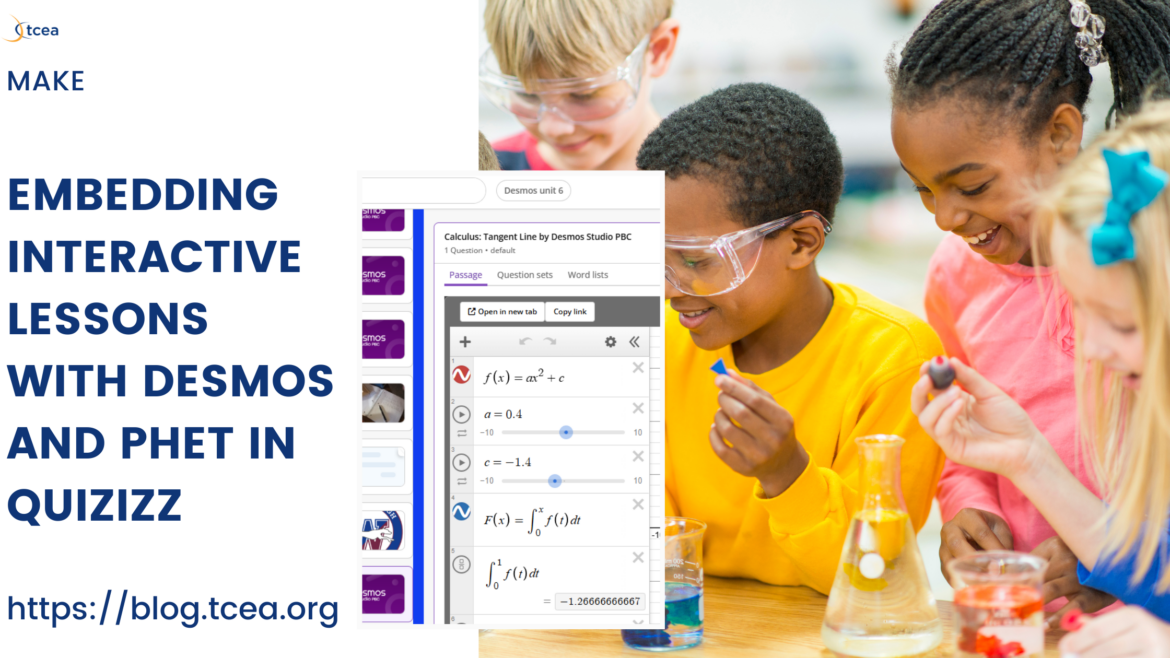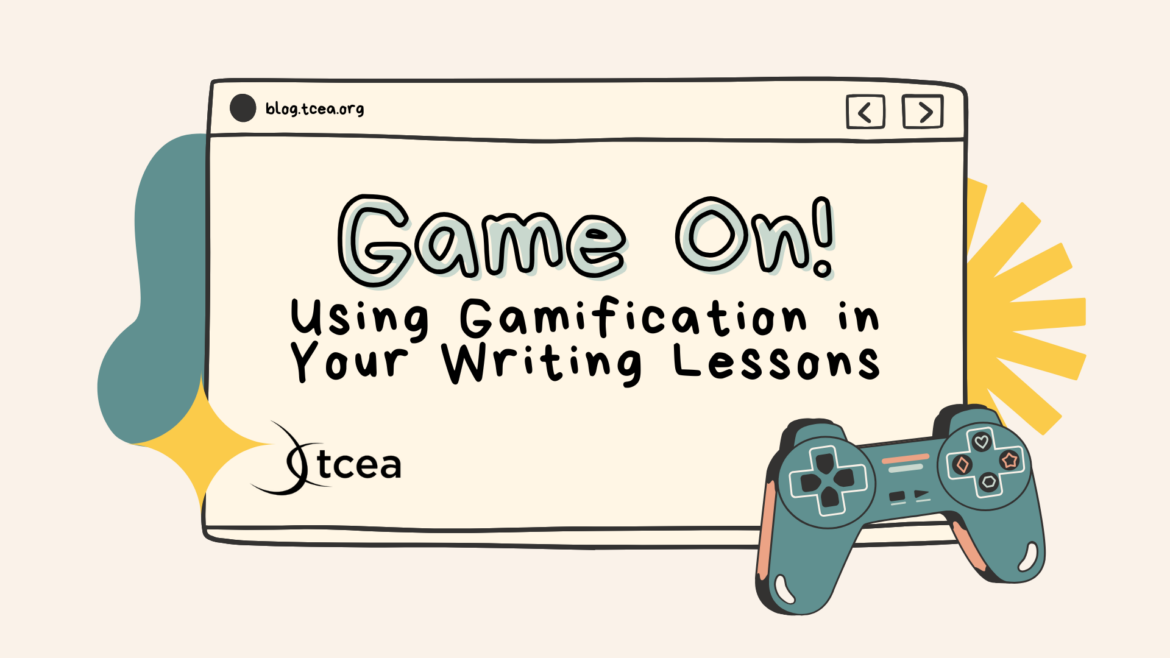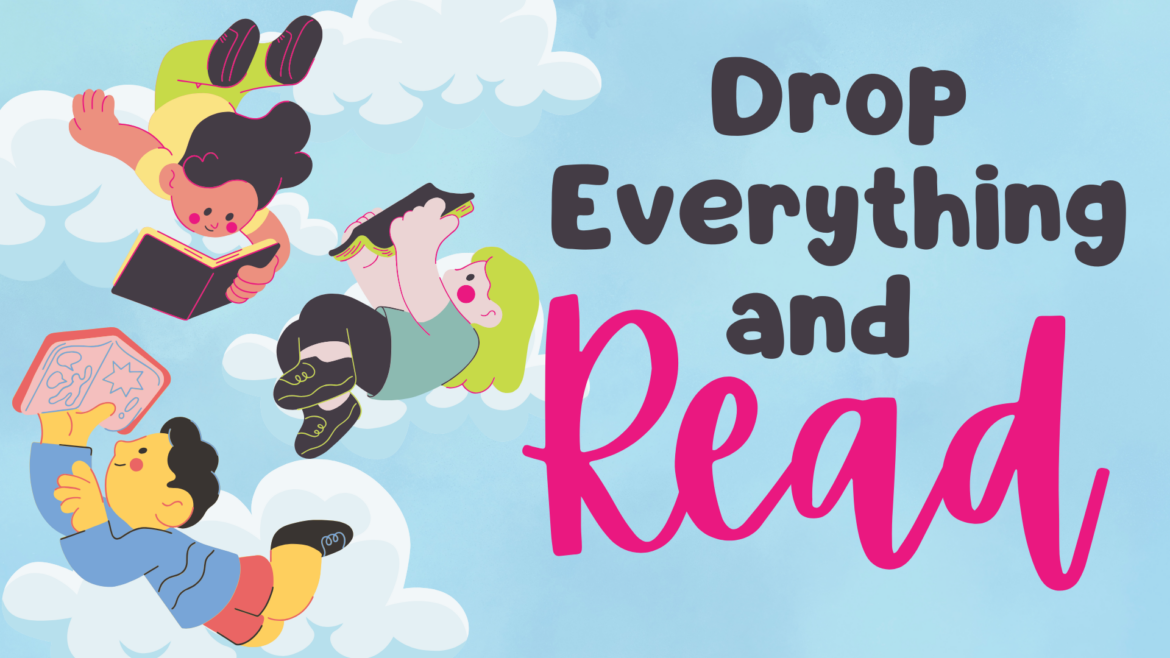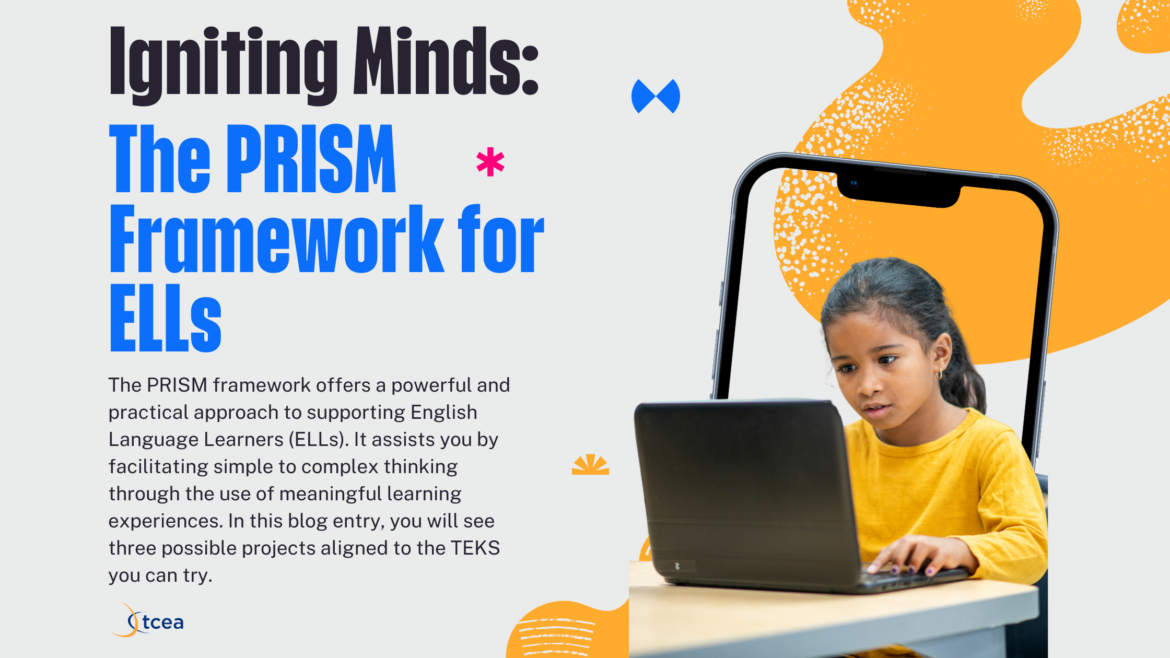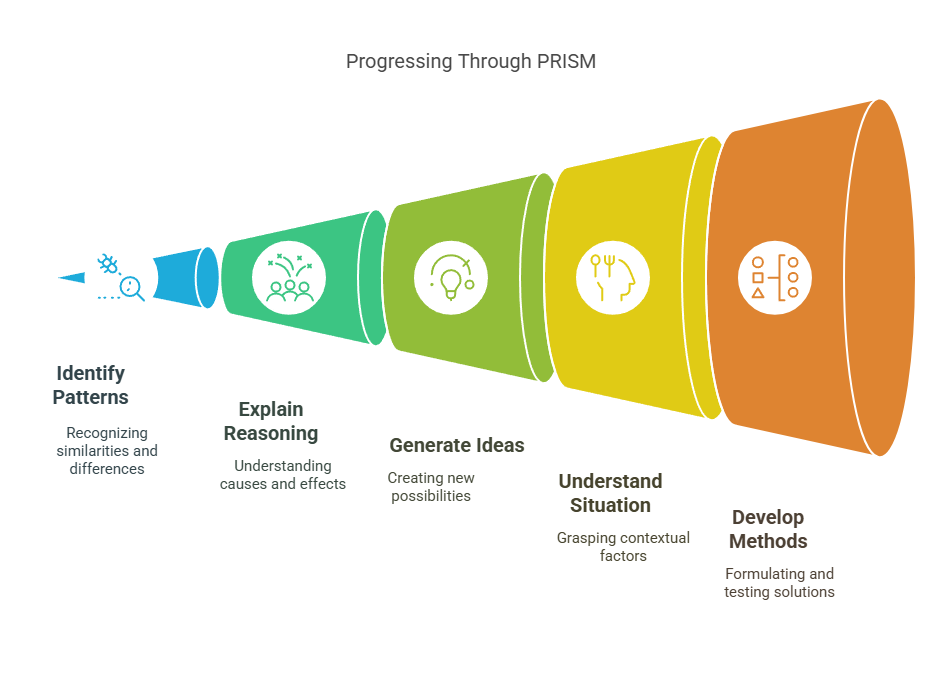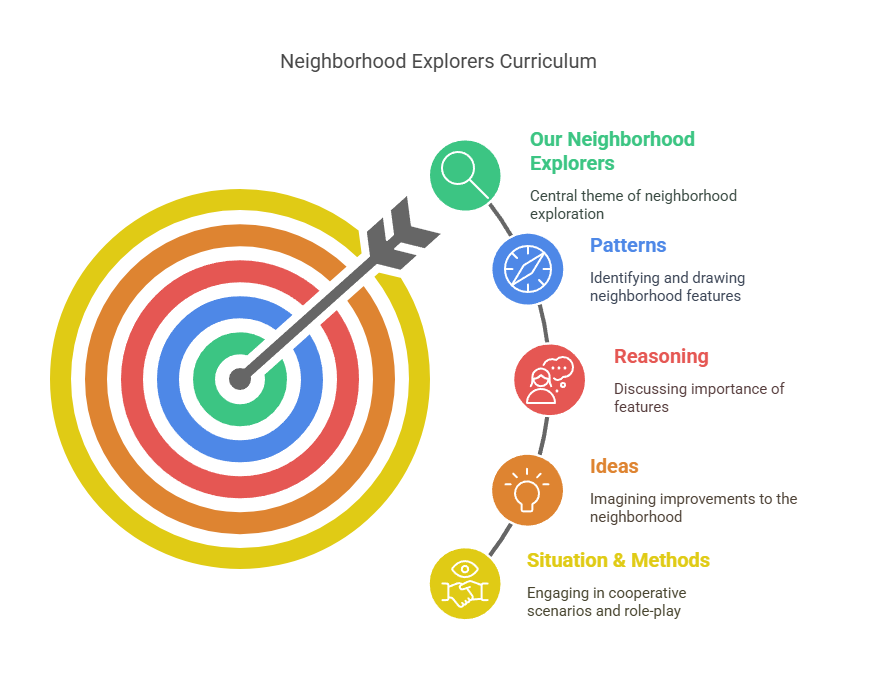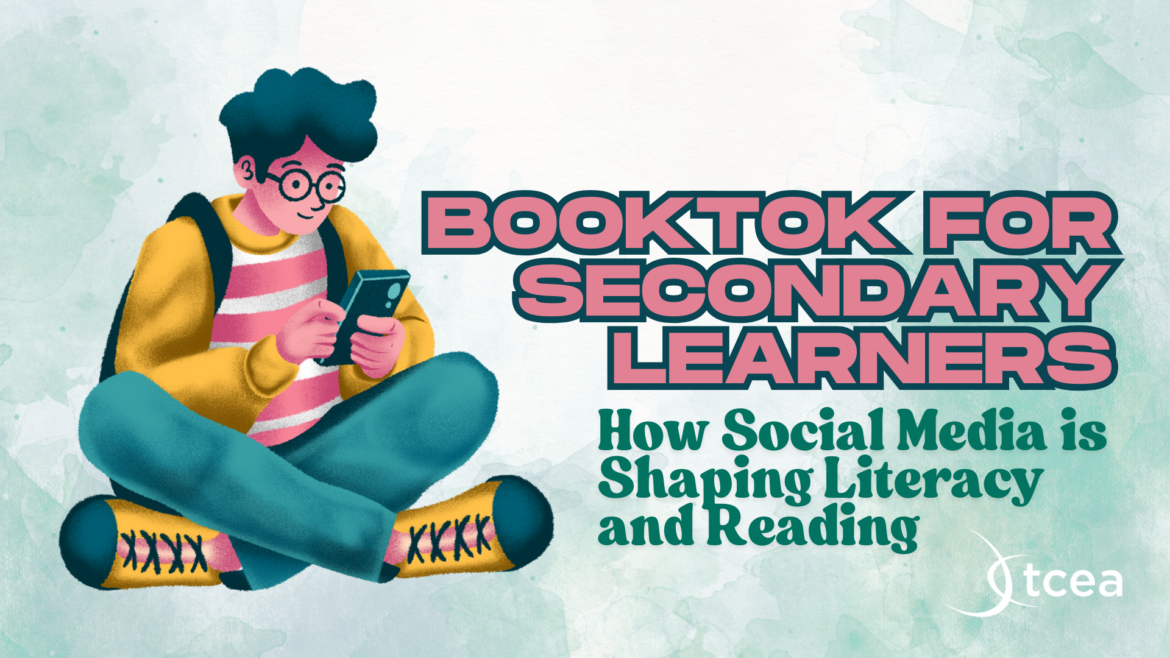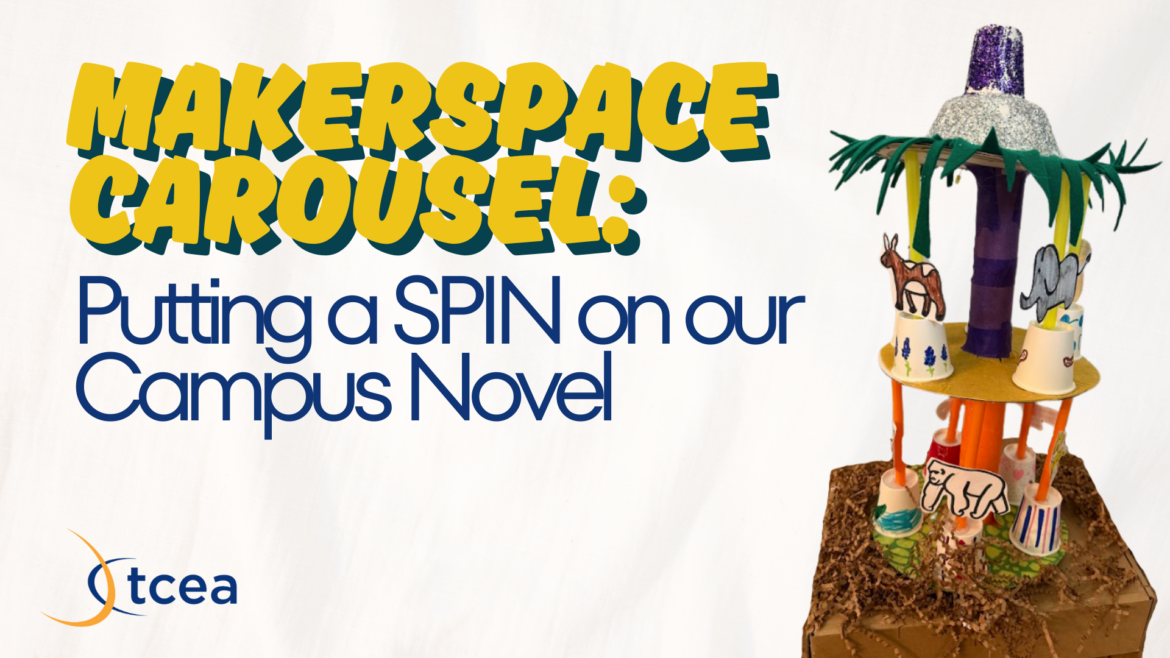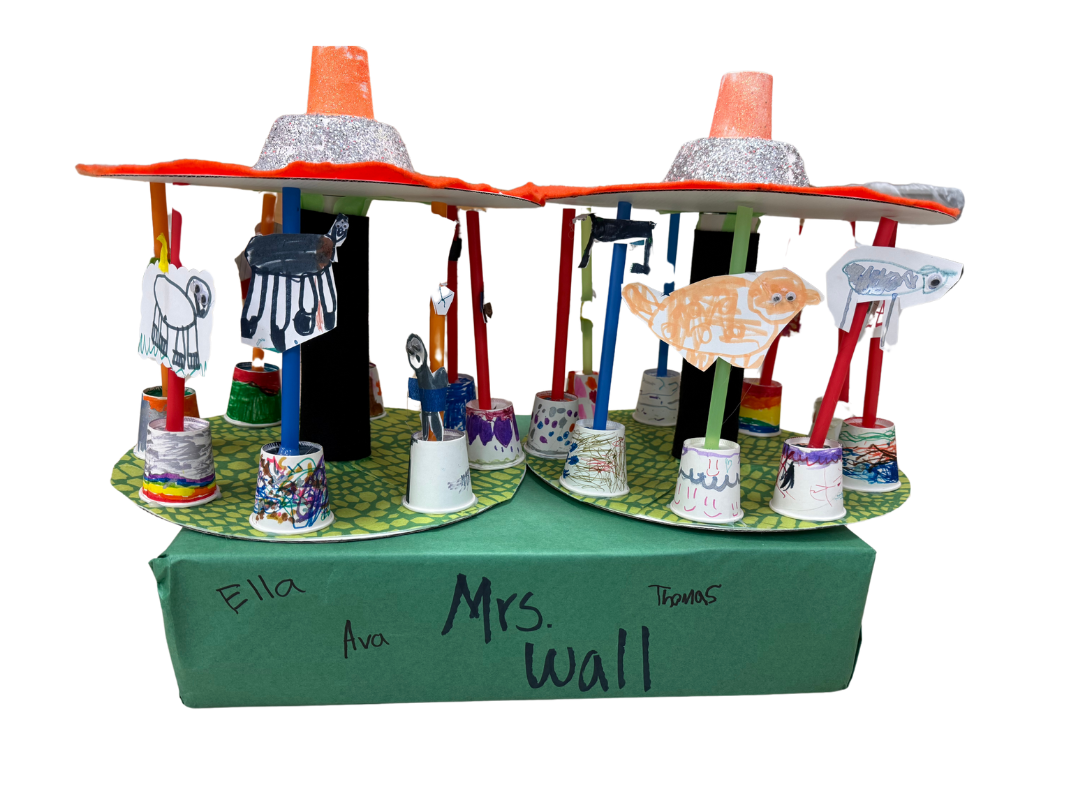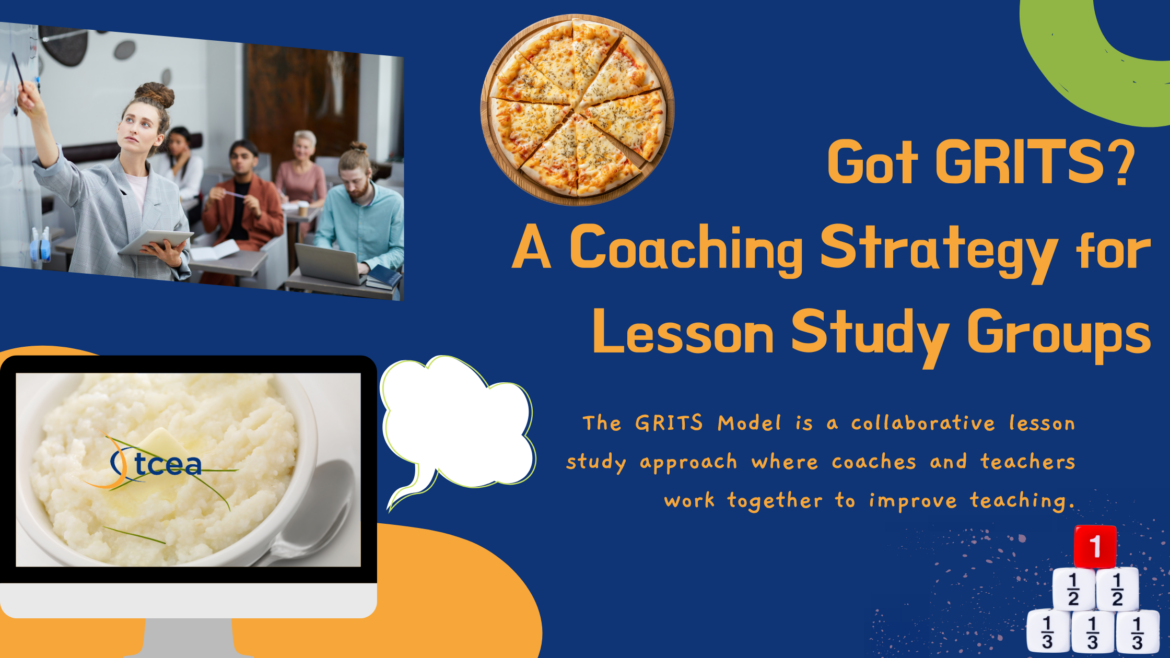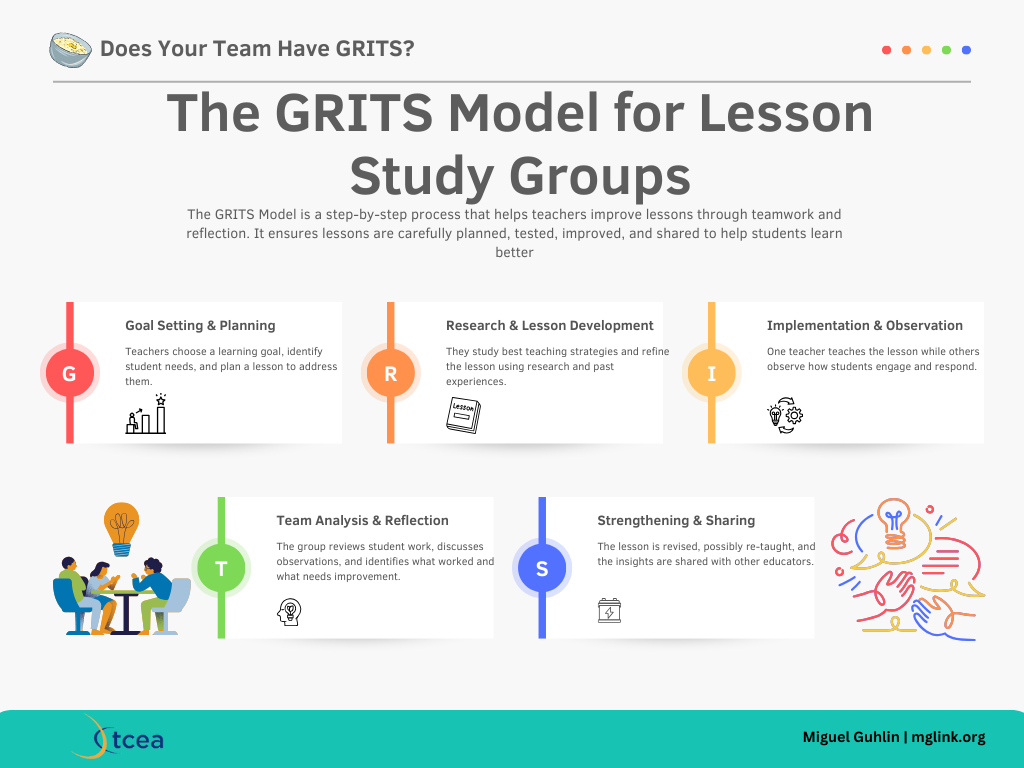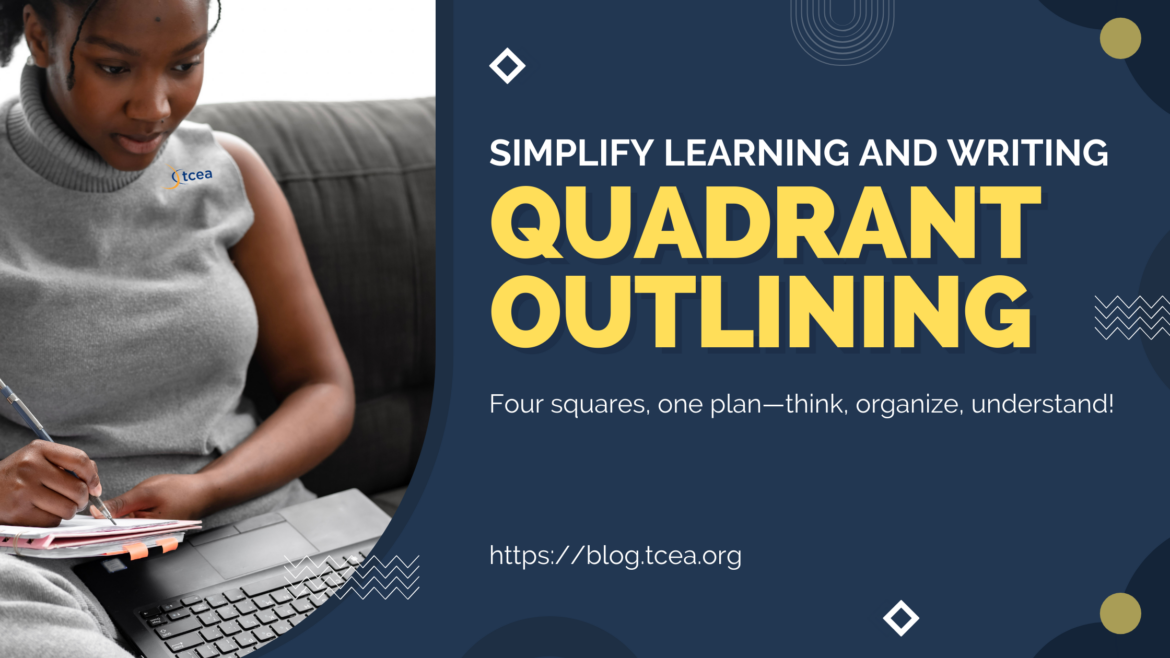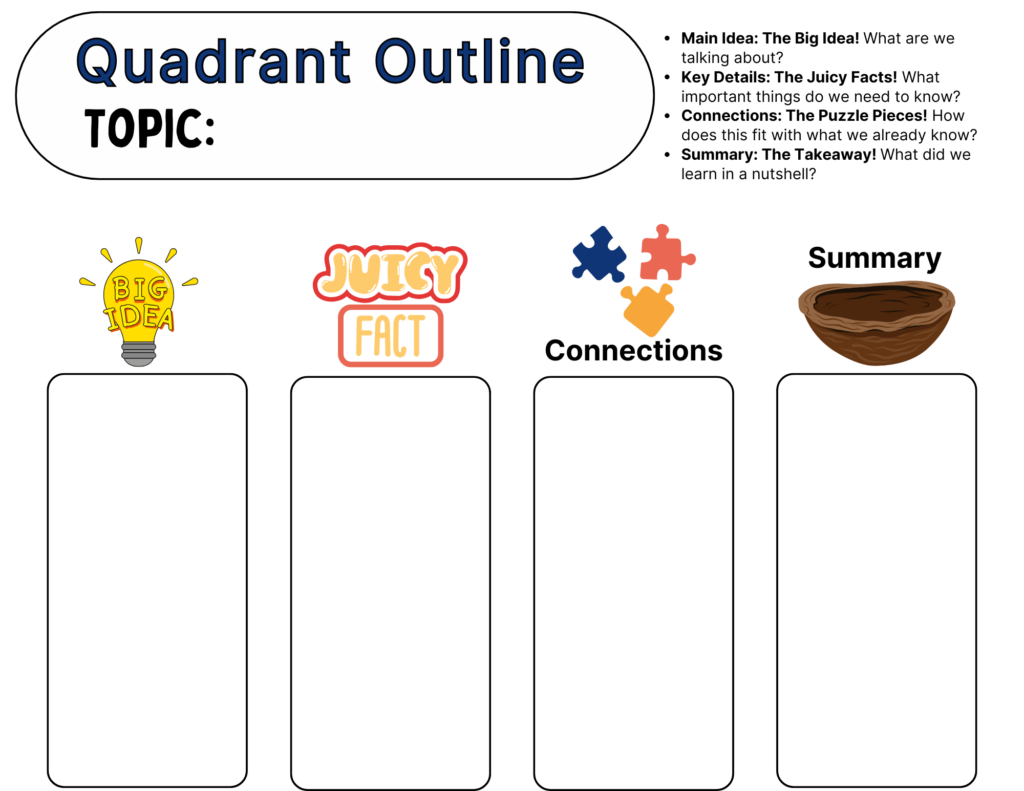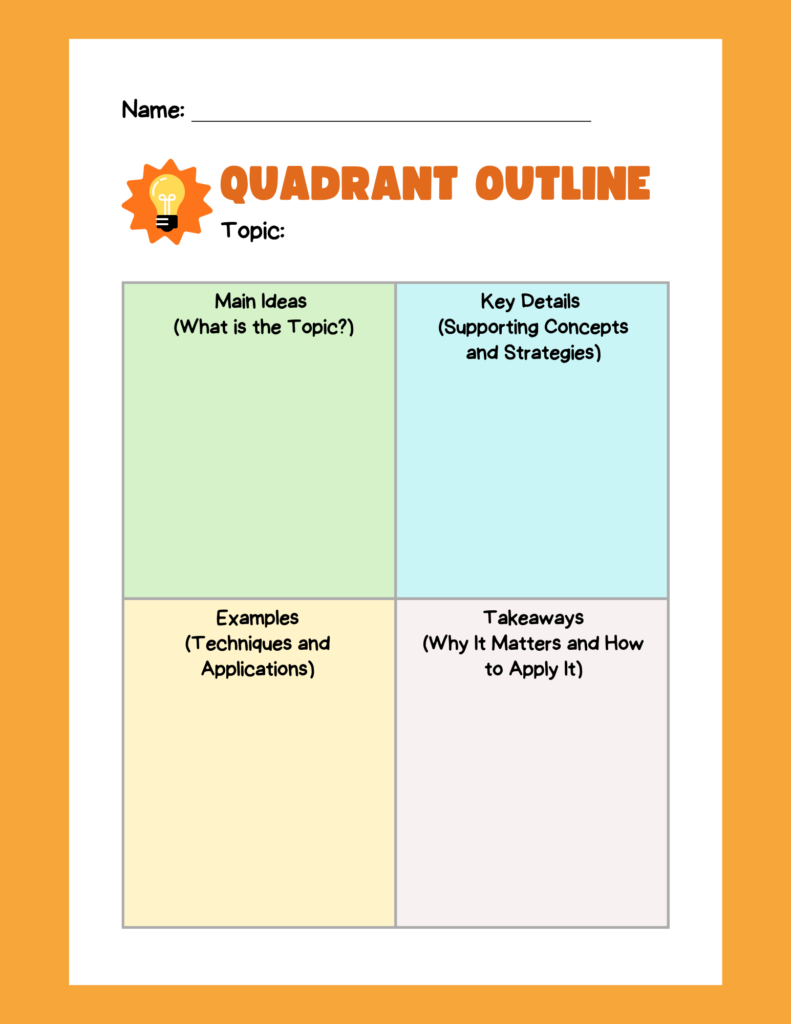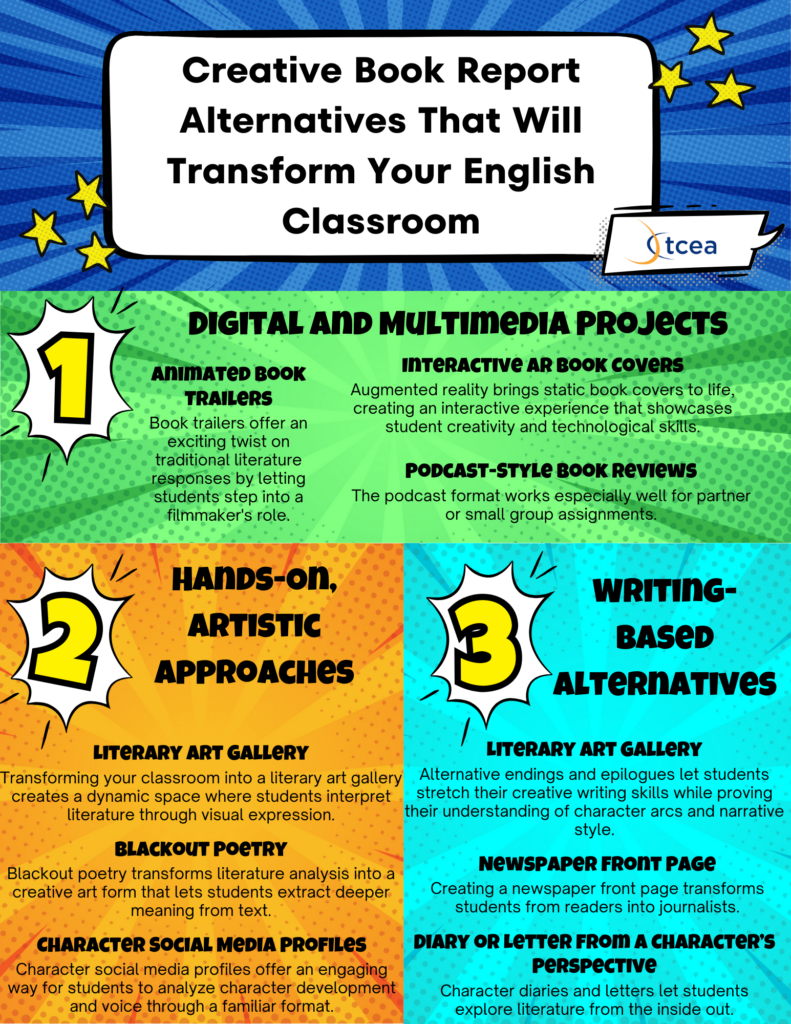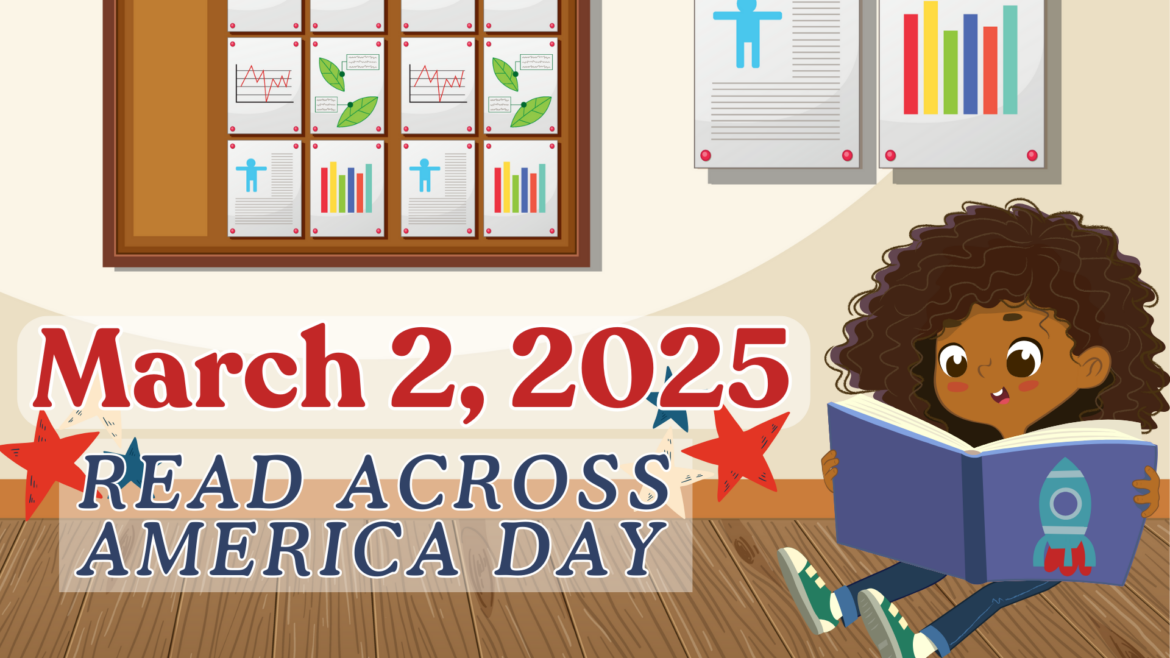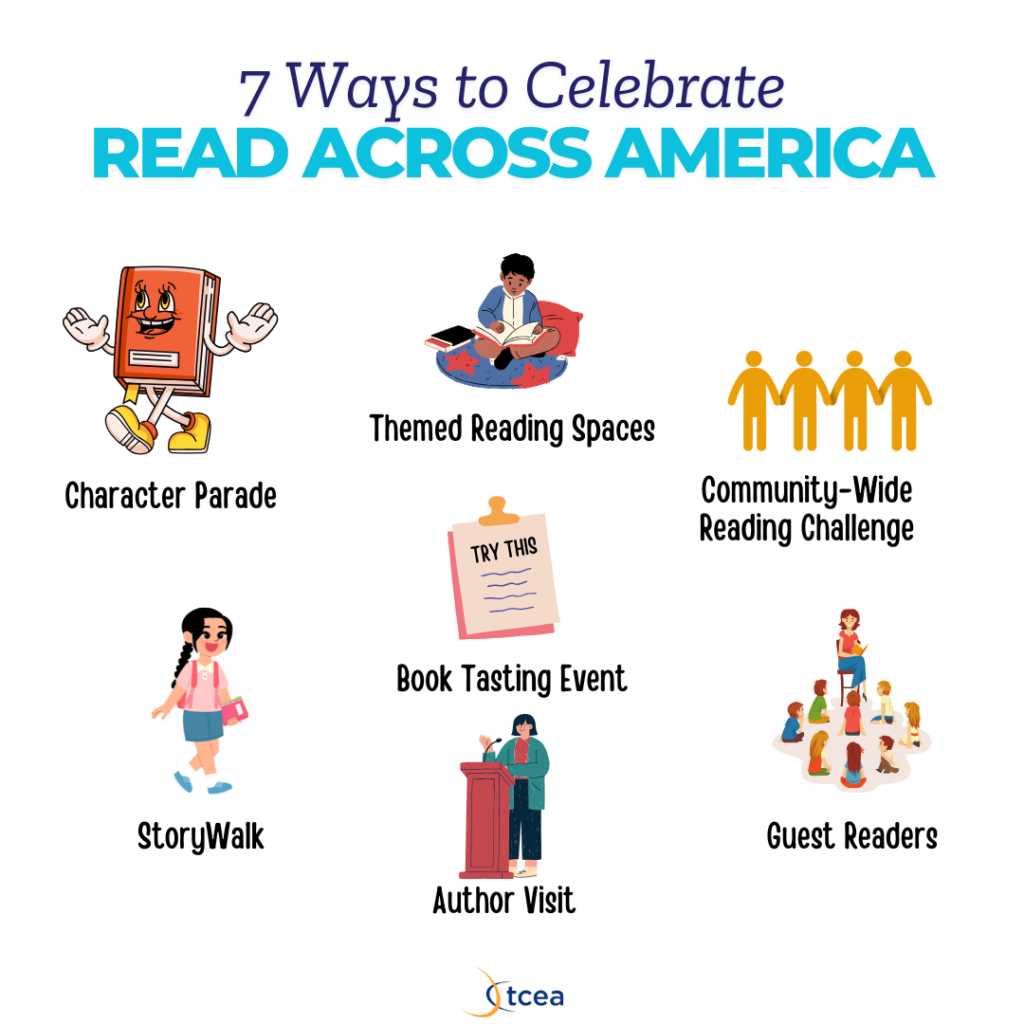Discover resources and strategies for teaching core content areas. Explore tips, tools, and activities to enhance learning across all subjects.
Want to manipulate variables in a simulation so your students can answer questions? Blend Desmos and PhET in Quizizz to change how you make abstract concepts tangible. Let’s see how to do that.
Interactive Tools That Matter
When learning math, I often wondered how to get my hands on it. Absent manipulatives, you had to settle for understanding abstract concepts. For many students learning math and science concepts, not much has changed. They are still conceptual, ideas in one’s mind. That’s why interactive tools like those below bridge the gap:
- Desmos graphing calculators
- PhET simulations
- Other virtual manipulatives
These tools allow students to make the intangible more than theoretical by:
- Allowing students to manipulate variables,
- Visualize relationships, and
- Develop intuition through exploration
Now, those tools are available in Quizizz activities. This means students get those benefits and teachers get assessment data. Teachers need not switch between one platform to another. This facilitates just-in-time interventions.
Benefits of Desmos and PhET in Quizizz
Without having to switch from one platform to another, students can:
- Explore concepts through hands-on digital manipulation
- Immediately apply their observations to answer questions
- Receive instant feedback on their understanding
- Stay engaged in a single, cohesive learning experience
Let’s take a look at how to do that.
How to Embed Desmos in Quizizz
It’s not hard to embed Desmos calculators into Quizizz lessons. Here’s how to do it:
Approach #1: Embedding in a Quizizz Lesson
- Find or create your Desmos activity and copy the URL
- In Quizizz, edit or create a lesson
- Click “Add new slide” and select “Web page link”
- Paste your Desmos URL and save
Method 2: Creating a Passage with Questions (Recommended)
- Copy the web address (URL) from your Desmos activity
- In Quizizz, select “Create” and then “Passage”
- Click “Embed website” and paste your Desmos URL
- Add questions alongside the embedded calculator to check understanding
- Publish and assign to your class.
The second method offers significant advantages. It combines exploration with assessment. This gives the teacher immediate data on student understanding. It happens even as they they interact with the math tools.
Integrating PhET Simulations in Quizizz
The goal of PhET simulations is to bring scientific concepts to life. They achieve this through interactive, research-based simulations. Quizizz has partnered with PhET to make the integration of the two more seamless.
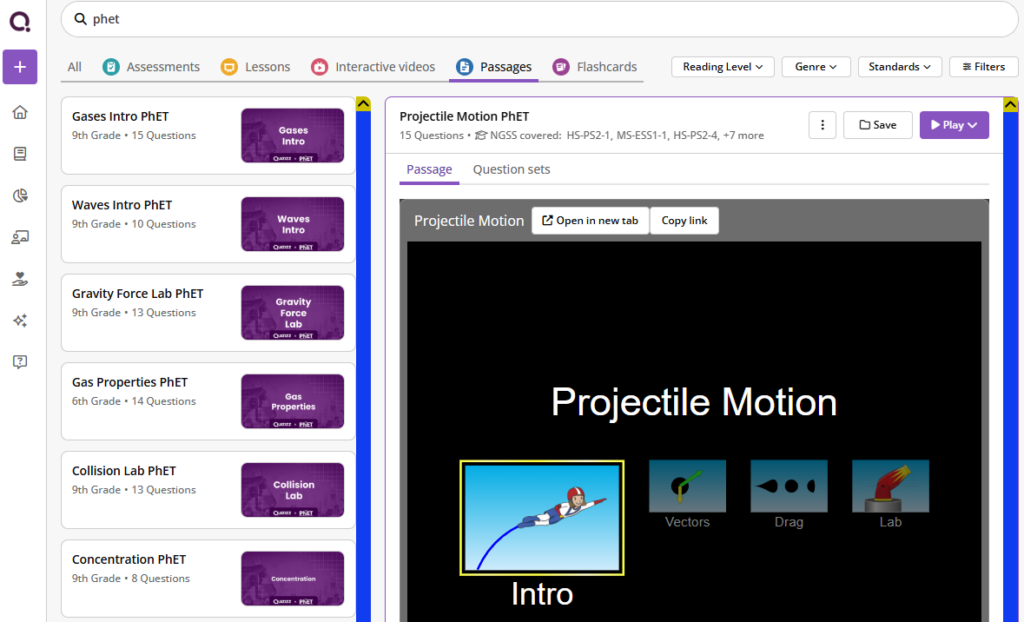
To use existing PhET simulations in Quizizz:
- Search for “phet” in the Quizizz library
- Browse the pre-made simulations with integrated questions
- Select one that fits your lesson goals
- Click “Start” to use immediately or “Assign” for later use
To customize or create your own PhET simulation activity:
- Find a pre-made PhET activity and click “Copy and edit”
- OR create from scratch by selecting “Create” → “Passage”
- Click “Embed website” and paste the URL from the PhET simulation
- Add your own questions tailored to your learning objectives
- Publish and assign to your students
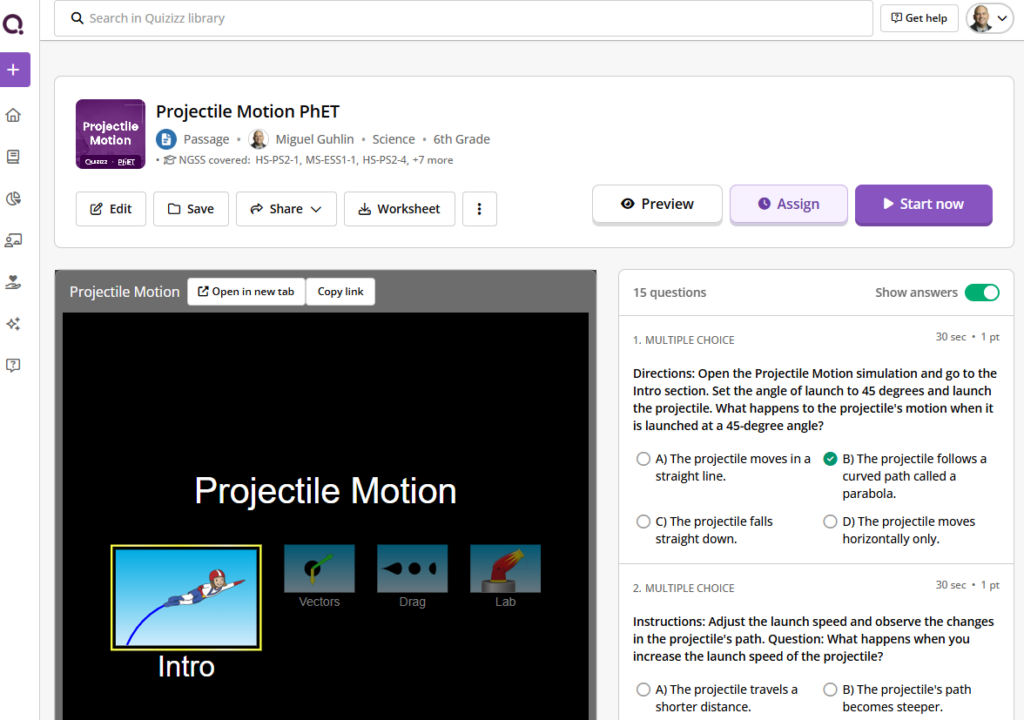
Finding Pre-Made Interactive Resources
The Quizizz library already contains many activities with embedded Desmos calculators. As you saw in the screenshots above, it also has PhET simulations. To find them for use, follow the steps below:
- In the Quizizz search bar, type “Desmos” or “PhET”
- Use filters to narrow results by grade level and subject
- Preview activities to find ones aligned with your learning goals
- Use as-is or click “Copy and edit” to customize
For PhET, Quizizz collaborated with five science educators. They created a comprehensive library of simulations with aligned questions. These questions cover topics across physics, chemistry, biology, and earth science.
Ways to Use Interactive Quizizz Lessons
Want to get the best use of these embedded interactives?
- Begin with clear learning objectives
- Provide structured exploration guidance in your questions
- Include a mix of conceptual and application questions
- Use the 18+ question types in Quizizz to vary assessment approaches
- Review class data to identify misconceptions for targeted follow-up
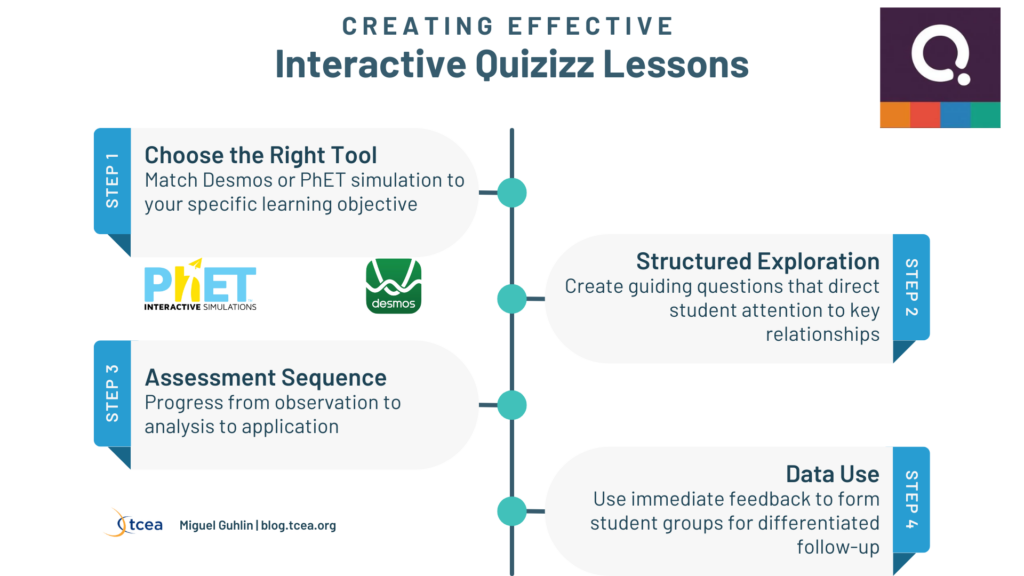
Take Your Interactive Lessons to the Next Level
Once you have the basics of embedding interactive tools, try these strategies:
- Create a sequence of lessons that build conceptual understanding
- Use different question types to target various learning modalities
- Integrate open-ended questions that ask students to explain patterns they notice
- Design collaborative activities where students predict, test, and explain using the simulations
A Quick Recap of the Benefits
Let’s review what makes embedding interactive lessons such a worthwhile effort:
- You build student understanding through the activity
- Students connect their explorations to the underlying concepts
- Students get a more durable learning experience.
Start now with an embedded interactive lesson today. See how students can engage with concepts in a tangible, concrete way.

